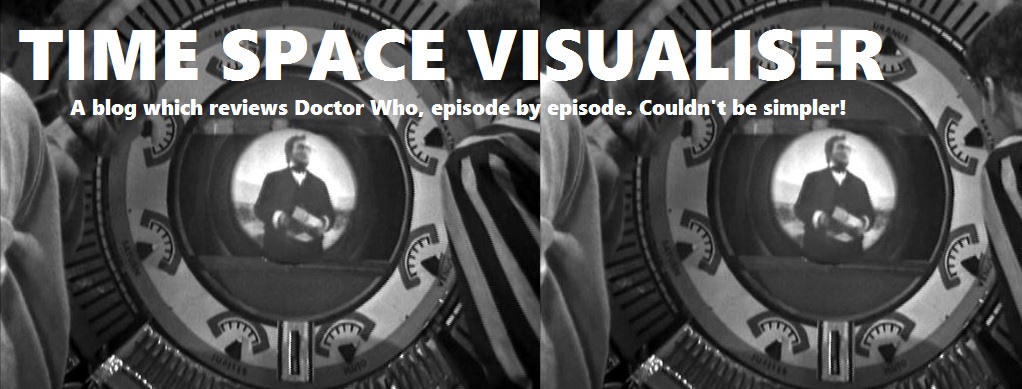The one where the Daleks turn kamikaze...
Davros, ever the self-preservationist, demands that the Daleks call him a cab in the form of a deep space cruiser to take him away from Skaro and to safety. Unfortunately, the cruiser (which I'd love to see) will take six hours to get to Skaro, which just isn't quick enough for Davros's liking. The Kaled crackpot is also annoyed that there's such a thing as a Dalek Supreme ruling the roost, and insists that as Dalek creator, he should be the one deciding the Daleks' destiny. It's a fascinating set-up for Dalek stories to come, in which the Daleks are factionalised and start fighting among themselves. The fact the Dalek battle computers are too logical in their stratagems also hints at gruesome developments seen in Remembrance of the Daleks and Bad Wolf, where we see human beings wired into Dalek tech to outwit the constraints of logic.
Davros continues to jiggle his way around in his little wheelchair spouting about his personal supremacy and how the Daleks will thrive under his command. But at the end of the day - and this isn't really any fault of David Gooderson's - Davros just isn't up to scratch here. Gooderson doesn't do a bad job of portraying Davros, he's just different to Michael Wisher, and different in a way that isn't as good, sadly. There's nothing specific about Gooderson's Davros that's wrong, it's just that he's not Michael Wisher, and you can't really criticise him too much for that!
Davros continues to jiggle his way around in his little wheelchair spouting about his personal supremacy and how the Daleks will thrive under his command. But at the end of the day - and this isn't really any fault of David Gooderson's - Davros just isn't up to scratch here. Gooderson doesn't do a bad job of portraying Davros, he's just different to Michael Wisher, and different in a way that isn't as good, sadly. There's nothing specific about Gooderson's Davros that's wrong, it's just that he's not Michael Wisher, and you can't really criticise him too much for that!














